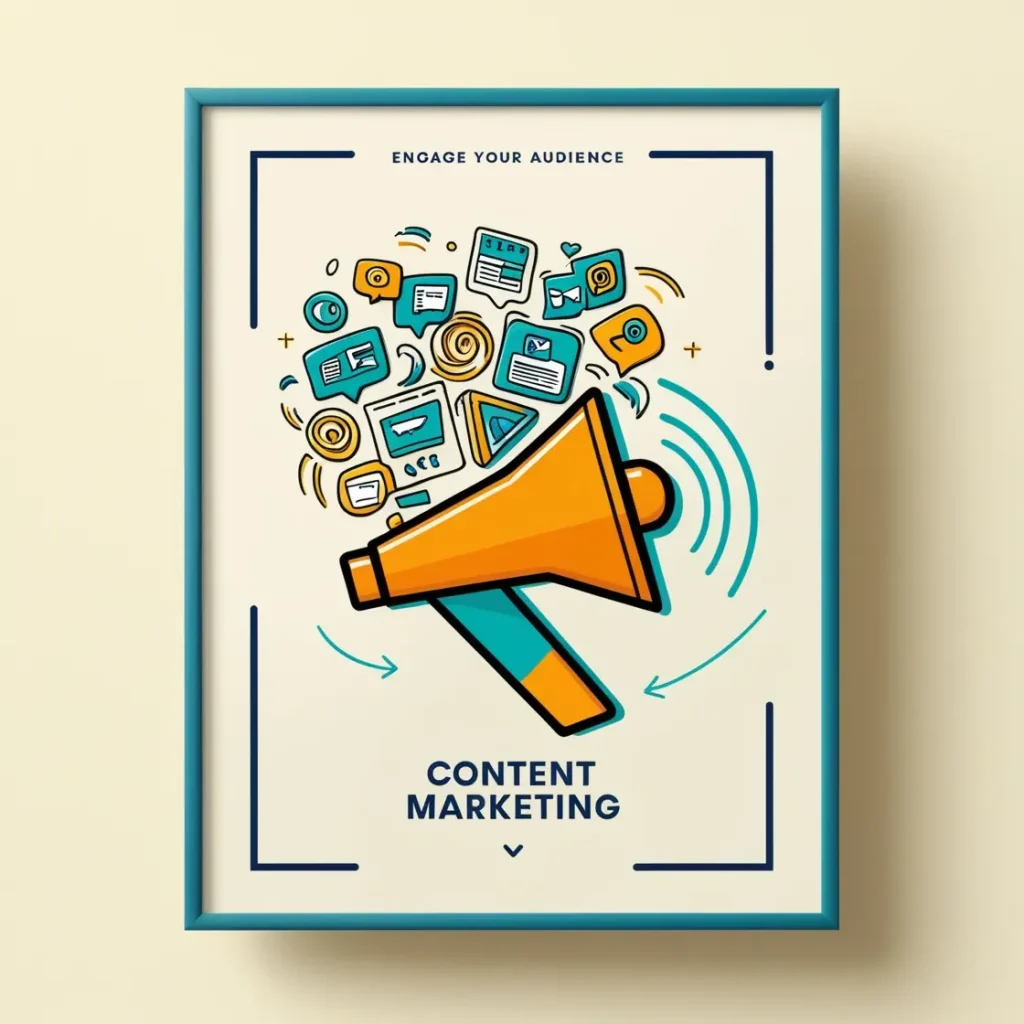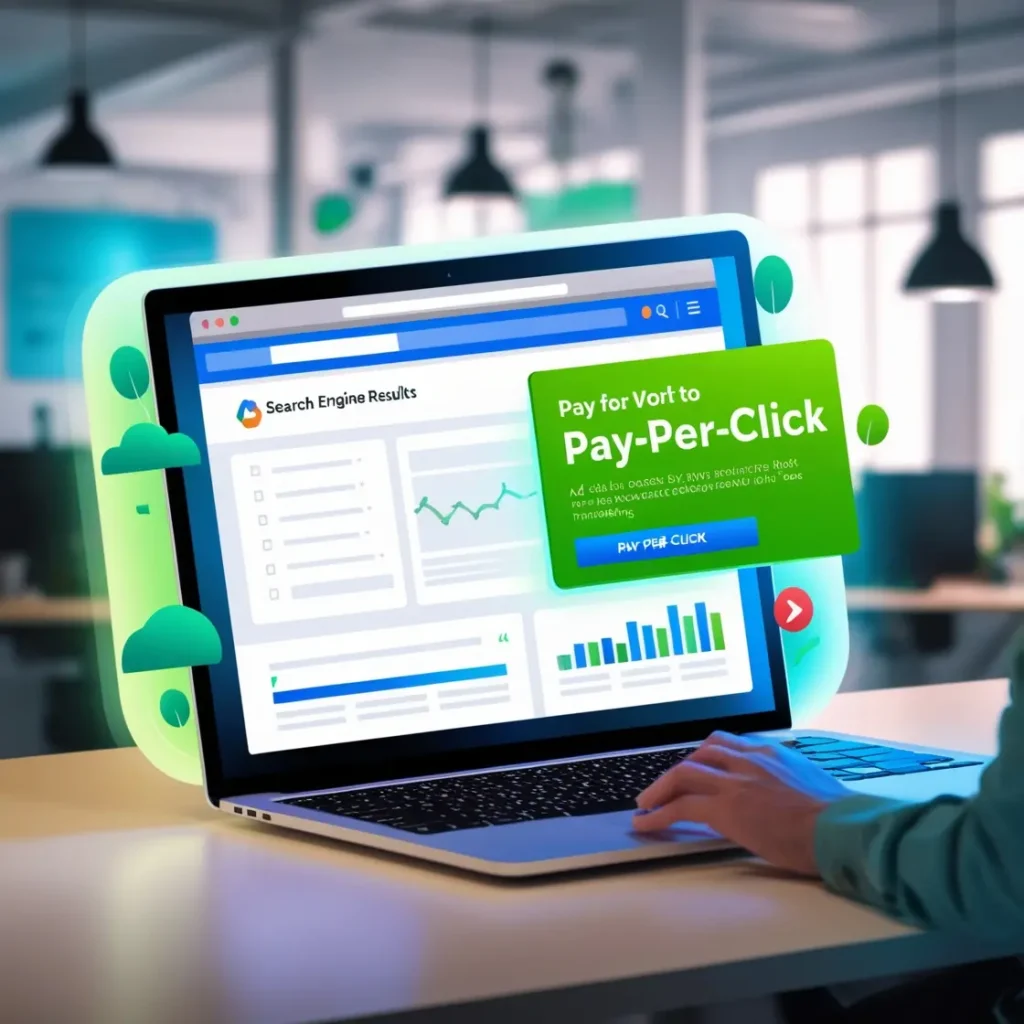Staying ahead of the curve in marketing is crucial for businesses of all sizes. As consumer behavior, technology, and platforms evolve, so too must the strategies that companies use to reach and engage their target audience. Digital marketing, once a simple combination of SEO, social media, and email campaigns, has expanded into a multifaceted, dynamic field that requires constant adaptation.
To remain competitive, businesses need to stay informed about the latest trends in digital marketing. These trends not only shape how brands connect with consumers but also offer new opportunities for growth, customer engagement, and conversion. From the rise of artificial intelligence (AI) in marketing to the increasing importance of video content and personalized customer experiences, digital marketing continues to evolve at a rapid pace.
In this article, we’ll explore the top digital marketing trends every business should know, providing insights on how to leverage these innovations to drive success in an ever-changing digital landscape. Whether you’re a small business owner or part of a large enterprise, understanding these trends will help you craft effective strategies and stay relevant in the competitive market.
1. The Origins and Significance of Digital Marketing
Digital marketing, now a cornerstone for businesses of all sizes, traces its origins back to the 1990s when the internet and technological advancements began to reshape the business landscape. What started as a new way to sell products online has since evolved into a powerful tool for driving brand awareness, fostering customer engagement, and accelerating sales growth. Today, digital marketing is far more than just e-commerce—it is a critical component of any business strategy.
One of the key advantages of digital marketing is its ability to analyze and understand consumer behavior. Through data analytics, businesses gain valuable insights into their audience’s preferences, behaviors, and online habits. This data helps brands refine their strategies, personalize campaigns, and ultimately improve the customer experience.
As digital platforms become increasingly integrated into our daily lives, businesses must prioritize building a strong online presence. By embracing emerging tools, trends, and technologies, companies can stay competitive and continue to reach their target audience in an ever-evolving digital world.
2. The Need for Search Engine Optimization (SEO)
SEO (Search Engine Optimization) is a fundamental component of any successful digital marketing strategy. For businesses with an online presence, appearing high in search engine results—especially Google—is essential for visibility and growth. Achieving this requires staying up-to-date with the latest SEO trends and aligning your website with search engine algorithms.
In the past, SEO efforts were heavily focused on keyword optimization. However, search engines have become much more sophisticated, now considering a broader range of factors when ranking websites. Beyond just keywords, elements such as website load speed, user experience, mobile-friendliness, and overall content quality have gained importance. Today, search engines prioritize websites that provide valuable, user-centric experiences.
The rise of voice search is another trend reshaping SEO. As more users rely on voice-activated devices like smartphones and smart speakers, optimizing your content for voice search is becoming crucial. Additionally, local SEO has become increasingly important for small businesses targeting regional customers, as search engines now emphasize local relevance and geolocation in their results.
By staying on top of these SEO trends, businesses can improve their search engine rankings, increase organic traffic, and ultimately enhance their online visibility and customer acquisition.
3. The Power of Social Media Marketing
Social media platforms—such as Facebook, Instagram, Twitter, and LinkedIn—have evolved from simple networking tools into essential marketing channels for businesses of all sizes. These platforms are no longer just for brand awareness; they are now key drivers of customer engagement, direct sales, and relationship-building. For businesses, understanding where their target audience spends most of their time is crucial in shaping an effective social media strategy.
One of the most impactful trends on social media is the power of visuals. High-quality images, engaging videos, and compelling graphics can elevate a brand’s presence and increase consumer engagement. In addition, social media advertising has become a highly effective tool for reaching specific audiences. With advanced targeting options available on platforms like Facebook and Instagram, businesses can create highly personalized ads that reach particular demographics, interests, and behaviors.
When implemented correctly, paid social media campaigns offer a strong return on investment (ROI) by driving both brand visibility and conversions. As social media continues to dominate the digital landscape, mastering these platforms is essential for any business looking to thrive in the competitive online marketplace.
4. The Importance of Content Marketing

Content marketing is often regarded as the cornerstone of digital marketing. In today’s competitive online landscape, every business must understand the critical role that high-quality content plays in building a strong online presence. Content marketing goes far beyond traditional blog posts—it encompasses a wide range of media, including infographics, videos, podcasts, webinars, and case studies.
High-quality content not only boosts SEO by helping your website rank higher in search engine results but also enhances user engagement. Engaging, informative content educates your audience, builds trust, and nurtures relationships, subtly promoting your products or services in the process. The more valuable and relevant your content is to your audience, the more likely they are to trust your brand and return for more.
Additionally, email marketing and newsletters fall under the content marketing umbrella. These channels offer businesses a direct line to their customers, enabling them to deliver personalized messages, share updates, and foster ongoing engagement. Whether you’re sharing valuable insights or promoting a new offering, content marketing helps businesses connect with their audience in meaningful ways.
May you also like it:
Content Marketing Strategies for Small Businesses
Mastering Social Media Marketing to Boost Your Brand Growth
5. The Enduring Power of Email Marketing
Despite the rise of new digital marketing channels, email marketing remains one of the most effective and powerful tools in a marketer’s toolkit. Although email marketing is one of the oldest digital strategies, its relevance continues to grow as businesses refine their techniques and personalize their approach.
Personalized email campaigns that cater to the specific interests and behaviors of individual customers yield higher engagement and conversion rates. Whether it’s sending product recommendations, exclusive promotions, or updates on new launches, tailored emails speak directly to the needs of your audience.
Automation has further enhanced the effectiveness of email marketing, enabling businesses to send timely and relevant messages without manual effort. Automated email sequences—such as welcome emails, cart abandonment reminders, or follow-up emails—help keep customers engaged throughout their journey, ensuring that no opportunity is missed.
The biggest advantage of email marketing is its ability to establish a direct, personal connection with your audience. By nurturing relationships through well-crafted, targeted emails, businesses can foster loyalty, drive sales, and build long-term customer engagement.
6. The Role of Pay-Per-Click (PPC) Advertising

Pay-per-click (PPC) advertising is an essential component of digital marketing, offering businesses a fast and effective way to reach their target audience. In PPC campaigns, advertisers pay each time a user clicks on their ad, whether it’s on search engines like Google and Bing or social media platforms. One of the major advantages of PPC is the immediacy of results—unlike SEO, which takes time to show outcomes, PPC provides instant visibility and traffic.
Another key benefit of PPC is budget control. You have the flexibility to set a daily budget and decide how much you’re willing to pay per click. Effective PPC campaigns rely on proper keyword research and compelling ad copy, which are essential for attracting clicks and driving conversions. Additionally, Conversion Rate Optimization (CRO) strategies can further enhance the effectiveness of your campaigns, helping you turn more clicks into actual customers.
7. The Rise of Influencer Marketing
Influencer marketing has become a powerful trend in digital marketing. Influencers are individuals with a large and loyal following on social media, and their endorsements can significantly impact consumer decisions. For businesses, influencer marketing offers a direct way to reach a targeted audience, driving brand awareness and credibility.
A growing trend in this space is the rise of micro-influencers, who have smaller but highly engaged audiences within specific niches. These influencers tend to be more affordable than their larger counterparts, yet they often deliver higher conversion rates due to their authentic and personal connection with followers. To leverage this trend effectively, businesses should identify influencers whose values and audience align with their brand and collaborate on campaigns that resonate with the target demographic.
8. The Explosion of Video Marketing
Video marketing has firmly established itself as a dominant force in the digital marketing landscape. Videos are not only more engaging but also better at conveying information in a digestible and compelling way. Platforms like YouTube, TikTok, and Instagram Reels are fueling the video content boom, making it crucial for businesses to incorporate video into their marketing strategies.
Video content—whether educational, product demonstrations or behind-the-scenes footage—helps businesses connect with customers on a deeper level, fostering trust and engagement. Video ads, in particular, have proven to drive high conversion rates, mainly when targeted strategically on social media platforms. Businesses should capitalize on this trend by creating videos that showcase their brand personality and communicate value in an entertaining and informative manner.
9. Embracing a Mobile-First Strategy
With mobile usage on the rise, adopting a mobile-first approach is no longer optional for businesses. A mobile-first strategy focuses on optimizing websites, emails, and advertisements for mobile users first, ensuring that they deliver a seamless and fast experience on smartphones and tablets. Since people now spend more time on mobile devices than desktop computers, neglecting mobile optimization can result in missed opportunities and lost customers.
Key elements of a mobile-first approach include responsive design, fast page load times, and user-friendly navigation. Mobile-specific content, such as vertical videos and mobile apps, is becoming increasingly popular. Not only does mobile optimization enhance user experience, but it also boosts SEO rankings, as Google now prioritizes mobile-friendly websites with its mobile-first indexing.
10. The Role of Artificial Intelligence (AI) in Digital Marketing
Artificial Intelligence (AI) is revolutionizing digital marketing by automating processes and offering more precise insights into consumer behavior. AI tools and algorithms enable businesses to run highly personalized campaigns and analyze large sets of customer data more effectively.
AI-driven automation is transforming tasks like email marketing, customer service (via chatbots), and even content creation. By using AI, businesses can deliver tailored experiences to customers based on their preferences, behaviors, and past interactions. AI also enhances the accuracy of customer insights, allowing for more informed marketing decisions. Integrating AI tools into your digital marketing strategy not only streamlines operations but also helps you stay competitive in a fast-evolving market.
11. Optimizing for Voice Search
Voice search is one of the fastest-growing trends in digital marketing. With the increasing use of voice assistants like Google Assistant, Siri, and Alexa, businesses must adapt their SEO strategies to account for this shift in how consumers search for information.
Voice search optimization involves using natural, conversational language in your content and targeting long-tail keywords that reflect how people speak rather than type. Since voice search is often performed on mobile devices, it’s essential to ensure your website is mobile-friendly, fast, and easy to navigate. Optimizing for voice search can improve your website’s visibility in search results and keep your brand relevant in the age of innovative technology.
12. The Power of Data-Driven Marketing
Data-driven marketing involves making strategic decisions based on insights gathered from customer data analysis. This trend has become indispensable for businesses looking to understand their audience and deliver more targeted and effective campaigns.
By leveraging data analytics, businesses can uncover key patterns in customer behavior, preferences, and purchase history, allowing them to tailor their marketing efforts more precisely. Data-driven marketing not only helps optimize budget allocation but also improves ROI by identifying which channels, content, and strategies resonate most with the audience. Businesses should integrate data analytics tools into their marketing efforts to refine their approach, maximize effectiveness, and stay ahead of competitors.
Frequently Asked Questions
What are the most important digital marketing trends for businesses in 2025?
Key trends for 2025 include the rise of AI for personalization, the growing dominance of video marketing, voice search optimization, and the need for mobile-first design. Businesses should also focus on data-driven marketing, social media advertising, and influencer marketing to stay competitive.
How can I stay updated with the latest digital marketing trends?
To stay informed, follow industry blogs, attend webinars, and subscribe to top digital marketing resources like HubSpot and Neil Patel. Additionally, join online forums or groups and use tools like Google Alerts for real-time updates on new trends.
Why is content marketing considered so important in digital marketing?
Content marketing helps build strong relationships with your audience by providing valuable, informative content. It improves SEO, increases engagement, and builds brand credibility, ultimately driving organic traffic and boosting customer trust.
How does SEO impact my digital marketing efforts?
SEO improves your website’s visibility on search engines, helping potential customers find you more easily. It enhances organic traffic, builds trust, and ensures long-term visibility, offering sustainable growth for your business.
Is influencer marketing only for big brands?
No, influencer marketing is effective for businesses of all sizes. Micro-influencers, with smaller but highly engaged audiences, are cost-effective and can generate strong conversion rates, especially for niche businesses.
How can I effectively use video marketing for my business?
Videos increase engagement and convey information in an impactful way, making them essential for modern marketing. Businesses should create engaging videos for product demos, educational content, or behind-the-scenes looks to connect with customers.
What is PPC advertising, and how does it benefit my business?
PPC advertising lets businesses pay only when users click on their ads, providing instant visibility and targeted traffic. It’s a highly effective way to drive conversions and control your marketing budget with precise targeting.
How can I optimize my website for mobile users?
A mobile-first approach ensures your website is responsive, loads quickly, and is easy to navigate on smartphones. Mobile optimization improves user experience and enhances SEO rankings, as search engines prioritize mobile-friendly websites.
Conclusion
Staying ahead of the latest marketing trends is essential for business success. Whether it’s leveraging AI for personalization, embracing the power of video marketing, or optimizing for mobile-first design and voice search, businesses must adapt their strategies to meet changing consumer behaviors and technological advancements.
By understanding and incorporating these trends—such as content marketing, PPC, social media marketing, and data-driven decision-making—companies can enhance customer engagement, improve brand visibility, and drive measurable growth. As digital marketing continues to evolve, businesses that remain agile, data-informed, and customer-centric will be best positioned for success in the years ahead.

